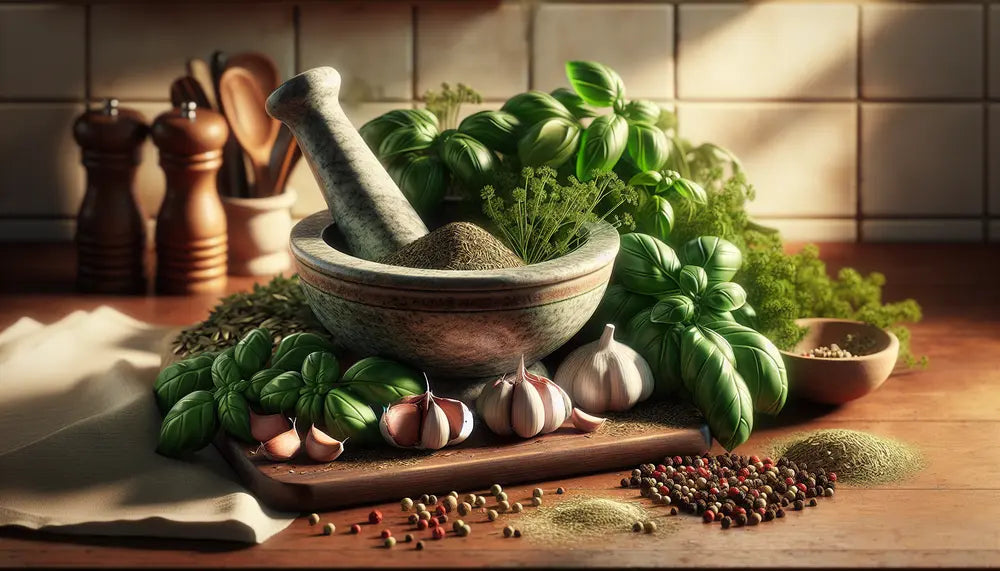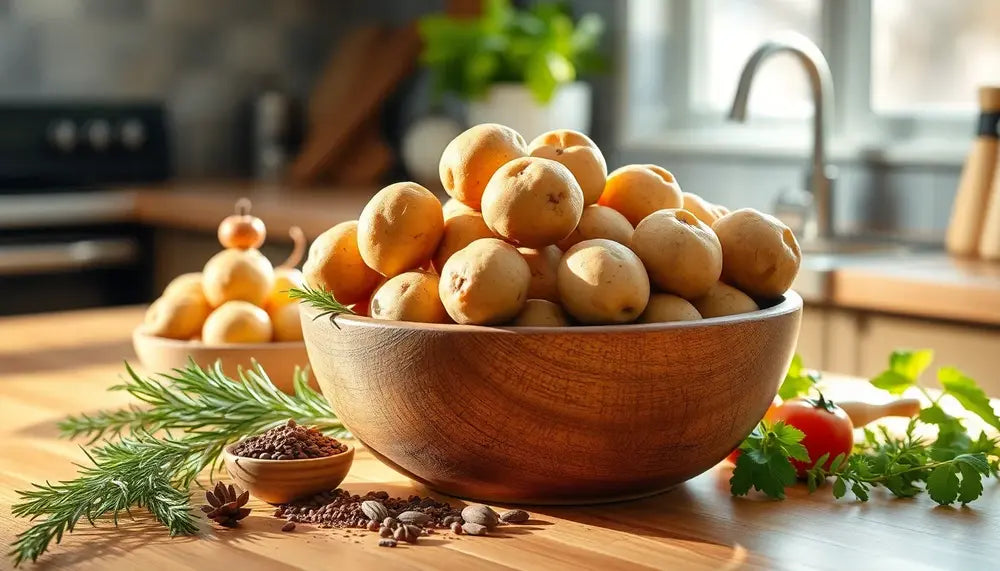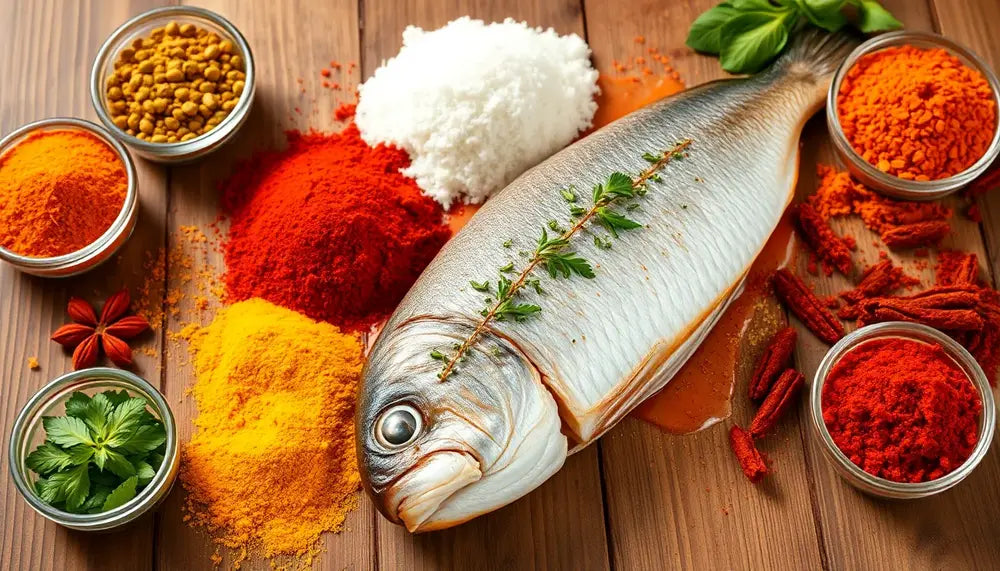The Basics of Italian Spices
To experience the true taste of Italy in your kitchen, understanding the basics of Italian seasoning is essential. Italian cuisine is characterized by the use of fresh and high-quality ingredients, including a variety of spices and herbs. These spices not only provide flavor, but also play an important role in the tradition and culture of Italian cooking.
Each Italian spice carries its own story and special characteristics that make certain dishes unmistakably Italian. Typical spices used in Italian cuisine include basil, oregano, rosemary and thyme. Each of these herbs gives a specific flavor to dishes and can be used in different combinations to enhance the flavor of sauces, meat dishes and pizzas.
Italian cuisine prefers fresh herbs that come straight from the garden or fresh from the market. Using fresh versus dried herbs can make a significant difference in the flavor of a dish. However, dried herbs have a longer shelf life and can provide a more intense flavor when used correctly.
It is also important to add the spices at the right time in the cooking process to best develop their flavors. Fresh herbs should typically be added toward the end of preparation to preserve their freshness and flavor intensity, while dried herbs are often added at the beginning to give them enough time to release their flavors.
Popular Italian spices and their uses
Among the many spices used in Italian cuisine, there are some that are used particularly frequently and largely determine the characteristic taste of Italian dishes. These include, above all, Basil, Oregano, Garlic, as well Black pepper and Sea salt.
Basil is probably one of the most emblematic Italian herbs and is essential for dishes such as pesto and tomato sauce. It has a sweet and spicy aroma that is best enjoyed when used fresh.
Oregano often used in dried form and is a must for pizza and various pasta sauces. It gives the dishes a slightly bitter and spicy note, which is typical of southern Italian cuisine.
Garlic, known for its strong and spicy flavor, is a staple of many Italian recipes. It is used both fresh and as a condiment and can be either finely chopped or added as a whole clove to enhance or soften the flavor.
Black pepper and Sea salt are ubiquitous in Italian cuisine and are used to enhance and highlight the depth of flavor of other ingredients.
The correct use of these spices can make the difference between a good Italian dish and an exceptional one. Experiment with these seasonings to enhance your own culinary creations and bring authentic Italian flavors to your kitchen.
Advantages and disadvantages of using Italian seasonings in the kitchen
| Advantages | Disadvantages |
|---|---|
| Improving the taste and aroma of the food | Some spices can cause allergies or intolerances |
| Increasing diversity in the kitchen | Over-seasoning can mask the natural flavor of fresh ingredients |
| Italian seasonings may provide health benefits | Proper storage is required to maintain freshness |
| Facilitates authentic imitation of Italian dishes | Costs for high-quality spices can be high |
Herbs of Italian cuisine
In addition to the basil and oregano already mentioned, there are a number of other herbs that are of great importance for Italian cuisine. These herbs not only give the dishes flavor, but also an aromatic freshness that is typical of Mediterranean dishes.
Marjoram and Saliebei play an important role in Italian cuisine, for example. Marjoram is similar to oregano, but has a slightly milder and sweeter taste. It is often used in meat dishes and sauces.
Sage has a strong, slightly bitter taste and is often used in combination with pork or in the famous sauce for "Saltimbocca alla Romana".
- Marjoram · Ideal for meat dishes and offers a milder alternative to oregano.
- Sage · Perfect for meat and some classic sauces, it shapes the taste with intense notes.
These herbs not only provide flavor, but also have health benefits and therefore contribute to a balanced diet. Their fresh or dried leaves can be added at different stages of cooking to achieve different flavor intensities and release the best flavors of each.
Spice blends for authentic Italian dishes
In Italian cuisine, special ones are often used Spice mixtures used to give traditional dishes their unmistakable character. These blends are the result of centuries-old traditions and each region of Italy has its own variations.
This is a well-known example “Italian herb mix”, which typically consists of a combination of basic herbs such as basil, oregano, rosemary and thyme. This mixture is often used for pizzas, pasta sauces or Mediterranean vegetables.
Another popular mix is this “Tuscan spice mix”, which is also known as “Tuscan seasoning salt”. In addition to the usual herbs, it often also contains dried tomatoes, garlic powder and sometimes even crushed fennel seeds, which gives it a special touch.
- Italian herb mix · A base for many Italian main dishes
- Tuscan spice mix · Ideal for steaks and rustic soups
Using these spice blends can give even simple dishes a depth and variety of flavors that reflect the food culture of Italy. They offer a convenient and at the same time authentic way to integrate the variety of Italian flavors into your own kitchen.
Tips for storing and using Italian spices
The Storage and correct Usage Italian spices are crucial to preserving their freshness and flavors for a long time. Here are some practical tips for getting the most out of your Italian seasonings:
- Store in a dark and dry place: Light and moisture are the enemies of spices. Therefore, store them in a dark, dry cupboard or drawer.
- Use airtight containers: Spices should be stored in airtight containers to protect them from humidity and contamination.
- Renew regularly: Spices lose intensity over time. Renew your spice supplies once a year so that you can always use the full aroma.
When cooking with Italian spices, the following points should be taken into account:
- Adding Dried Herbs Early: Dried herbs develop their full flavor when added early in the cooking process. This gives them time to release their flavors in the heat.
- Adding fresh herbs late: Fresh herbs retain their flavor and green color if added toward the end of the cooking time.
These simple storage and usage tips will help you Authenticity and Depth of flavor Make the most of your Italian spices and refine your dishes like a real Italian chef.
How to Use Italian Seasonings in Everyday Dishes
Italian spices are not only suitable for traditional Italian dishes, but can also Everyday dishes enrich and give them a Mediterranean touch. Here are some ideas for creative ways to use Italian spices in your everyday cooking:
- Soups and stews: Add an Italian seasoning blend to vegetable soups or stews to add a savory depth.
- Salad dressings: Mix dried basil, oregano, and a touch of garlic powder into your olive oil vinaigrette dressing for a fresh, Italian touch.
- Marinades for meat and fish: Use rosemary, thyme and crushed black pepper to intensify the flavor of marinades for meat or fish.
You should consider:
- Moderation in dosage: Italian spices often have a strong taste. Start with small amounts and adjust to your taste.
- Test combinations: Experiment with different combinations to see which spices pair best with your favorite dishes.
By incorporating Italian spices into your everyday cooking, you can transform a simple meal into a special taste experience. Use the variety and intensity of these spices to give your dishes a personal and creative touch.
Conclusion: Transform your kitchen with Italian spices
Italian spices offer a wonderful way to transform simple dishes into culinary masterpieces. They're the key to bringing the authentic taste of Italy right into your kitchen. By incorporating these spices into your cooking routines, you can not only enrich the flavors of your meals, but also take an atmospheric journey into the heart of Italian culture.
Whether you opt for classic recipes or would like to experiment and develop your own creations, the variety and intensity of Italian spices open up unlimited culinary possibilities. Remember that each spice has its own characteristics that, when used correctly, can take your cooking to the next level.
So start playing with the flavors and let your kitchen come alive with the scents and tastes of Italy. Your friends and family will thank you the next time they enjoy one Passion and spices prepared Italian dish.
Don't hesitate to delve into the world of Italian spices and bring a piece of Italy to your table with every spoonful. Buon Appetito!
FAQ on using Italian seasonings in cooking
Which Italian spices are essential for every kitchen?
Essential Italian spices include basil, oregano, rosemary, thyme and garlic. These spices are the cornerstone of Italian cuisine and give the dishes their typical Mediterranean touch.
How should you properly store Italian seasonings?
Italian seasonings should be stored in a cool, dark place in airtight containers to preserve their freshness and flavors. Light, heat and moisture can affect the quality of the spices.
What tips are there for using fresh versus dried herbs?
Fresh herbs are ideally added towards the end of the cooking time to maintain their freshness and full aroma. Dried herbs, on the other hand, should be added at the beginning of the cooking process as they need time to fully release their flavors.
How to use Italian seasonings in non-Italian dishes?
Italian spices can also be used in non-Italian dishes to give them a Mediterranean touch. For example, try adding oregano or basil to your marinades or salad dressings for a new flavor experience.
What are the health benefits of Italian seasoning?
Many Italian seasonings such as garlic, basil and rosemary offer health benefits including anti-inflammatory properties and supporting heart health. Additionally, they can help enhance the flavor of a dish without the need for additional salts or fats.





Share:
Spices for the perfect chicken soup: This is how it becomes delicious
The perfect composition: spices with spinach